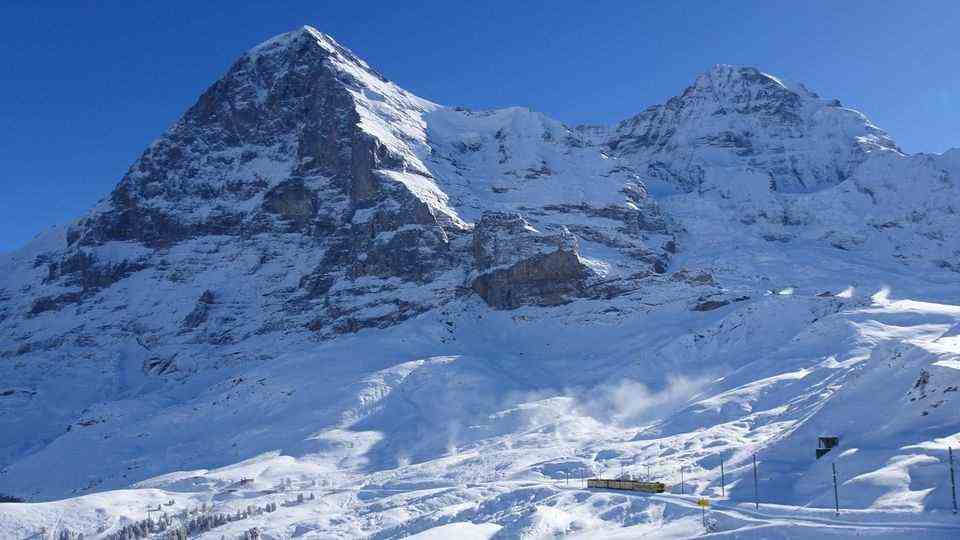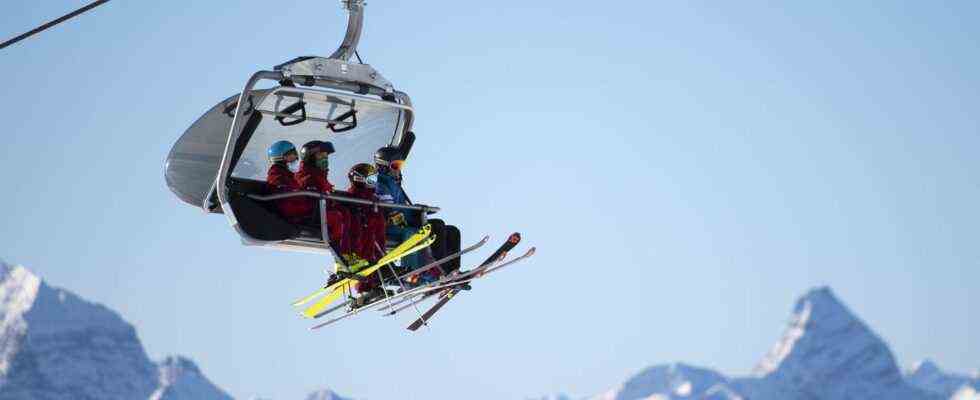Winter holidays 2021/22
The difficult start to the ski season: What the Alpine countries are planning
Start of the preseason 2021: Skiers on the slopes above Davos in Switzerland
© Gian Ehrenzeller / KEYSTONE / AFP
Last winter was a disaster for most ski resorts in the Alps. Because of the pandemic, the guests stayed away. After Austria was declared a Corona high-risk area, the requirements are tightened – the situation in the individual Alpine countries.
The first snow has long since fallen in the Alps. The winter season could actually begin in some higher-lying ski areas. But the bad news struck like an avalanche that Austria from November 14th, with the exception of a few municipalities such as Mittelberg and Jungholz and the Rissal in the municipal area of Vomp and Eben am Achensee, is classified as a Covid-19 high-risk area.
The Foreign Office in Berlin has even issued a “Covid-19-related partial travel warning” for Austria. “You are warned against unnecessary, tourist trips to Austria”, it says on the pages with the Travel and safety information. The announcement comes at an extremely inopportune time for the neighboring country to the south.
This has made the classic ski holiday for the unvaccinated there virtually impossible. Because the 2G rule will come into force on the ski slopes from Monday, November 15th. Cable car operators are only allowed to transport people who have been vaccinated or have recovered. In addition, there is an FFP2 mask requirement for people aged 15 and over in gondolas and chairlifts with hoods.
Après-ski is permitted under the 2G rules, but the authorities reserve the right to impose further restrictions if the intensive care units in Austria have reached their capacity limit. At the moment, the nationwide seven-day incidence is 815 patients per 100,000 residents, led by Salzburg with an incidence of 1345.
The notorious Corona hotspot Ischgl in Tyrol almost two years ago wants to make it less loud at the start of the season on November 27th. It has engaged the Italian pop trio Il Volo and the singer Alice for an open-air concert.
The location in the Bavarian Alps
As early as November 19, in Bavaria winter sports start in the Zugspitze region. However, the southernmost state has strict rules for snow fun. The 2G rule and FFP2 mask requirement apply in mountain railways. No clear hygiene regulations have yet been communicated across the board, including for hotels and restaurants, which is causing confusion.
Harbin Ice and Snow World: In the city of the glowing ice palaces
13 images
But due to the rapidly increasing corona numbers, hoteliers in places like Garmisch-Partenkirchen are already facing a wave of cancellations. “If the situation does not change soon, then we will have empty restaurants and hotels, employees without short-time work and no state aid whatsoever. Worse than in lockdown,” said Daniel Schimmer from Garmischer Hof.Mercury“.
Italy and the Green Pass and the Sanitaire Pass in France
Who after Italy If you travel to winter sports, including the popular South Tyrol, you cannot avoid the Green Pass for those who have been vaccinated, genesis and those who have been tested. The yellow vaccination certificate is not enough; The European, digital vaccination certificate must always be presented as an app or as a printout with QR code at the lift, in the restaurant or swimming pool.
Last season the ski lifts were in France closed. According to the mountain tourism association France Montagnes, the loss in the ski regions was 1.4 billion euros. In France, too, all skiers in the queues at the ski lifts now have to wear a mask and they are obliged to keep their distance. Should the seven-day incidence rise to over 200, it is mandatory to show a health pass with proof of vaccination, recovery or a negative test (3G rule). The “Pass Sanitaire” must already be shown when entering restaurants and après-ski bars.
Switzerland is trying a separate path
the Switzerland, the country with a low willingness to vaccinate, does not require any general proof of vaccination, recovery or a negative corona test when selling ski passes or at the lift in almost all ski areas.
A mask must only be worn in shops and public transport, including in closed gondola cabins. A vaccination or test certificate must be presented when visiting restaurants and bars.

The news that the Samnaun ski area in the canton of Graubünden wanted to introduce the 2G rule as in neighboring Ischgl caused confusion. But this measure was quickly withdrawn.
Anyone traveling to Switzerland, including by car, must not forget to fill out the mandatory entry form. In addition, unvaccinated persons must show a negative rapid antigen test, which must not be older than 48 hours. After four to seven days at the latest, this group of people in Switzerland must be tested again at their own expense.


